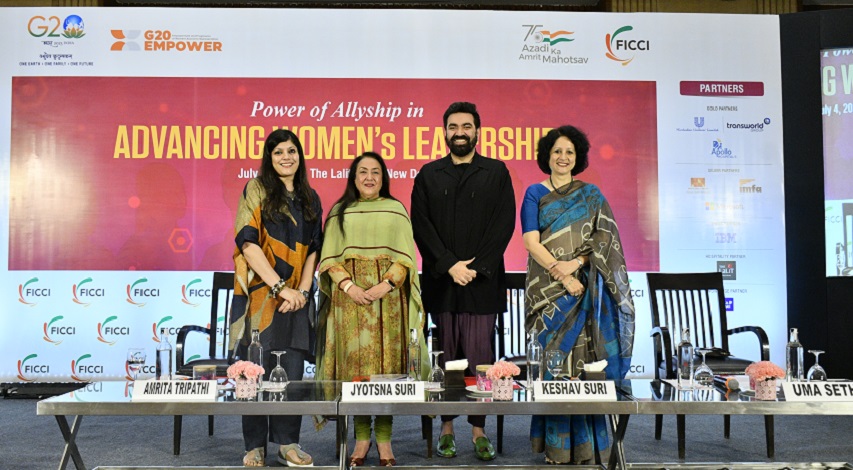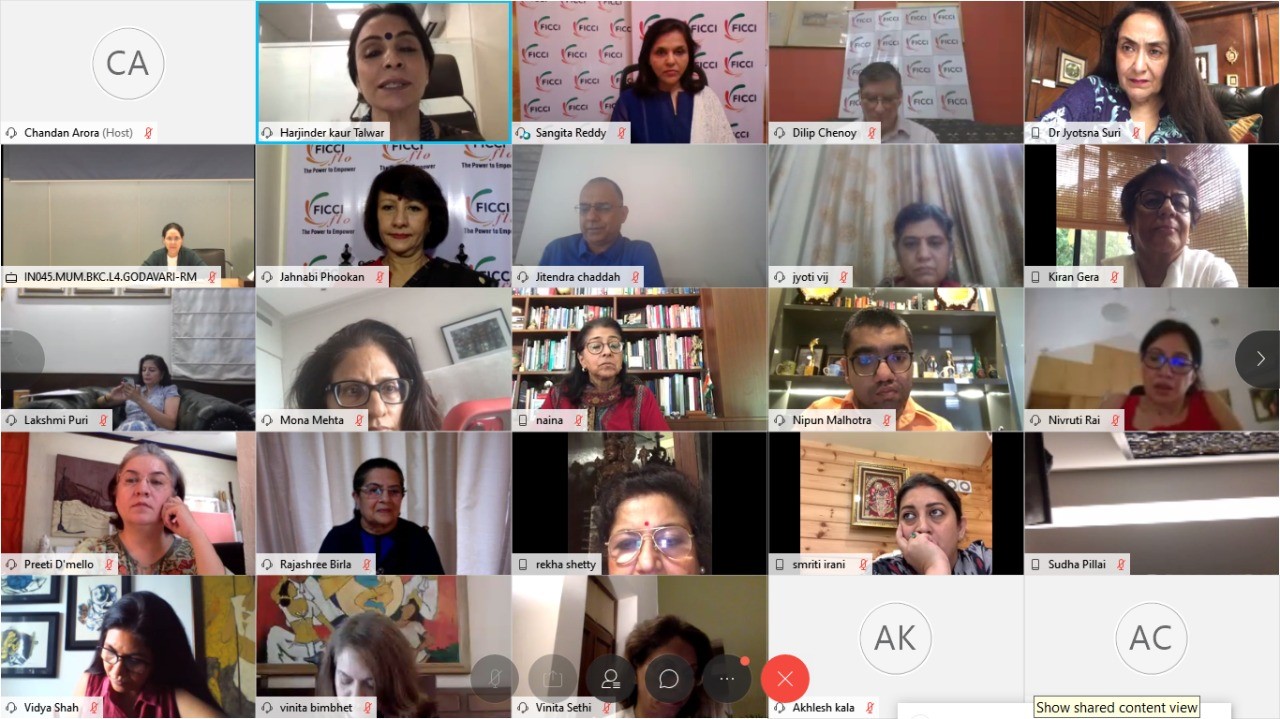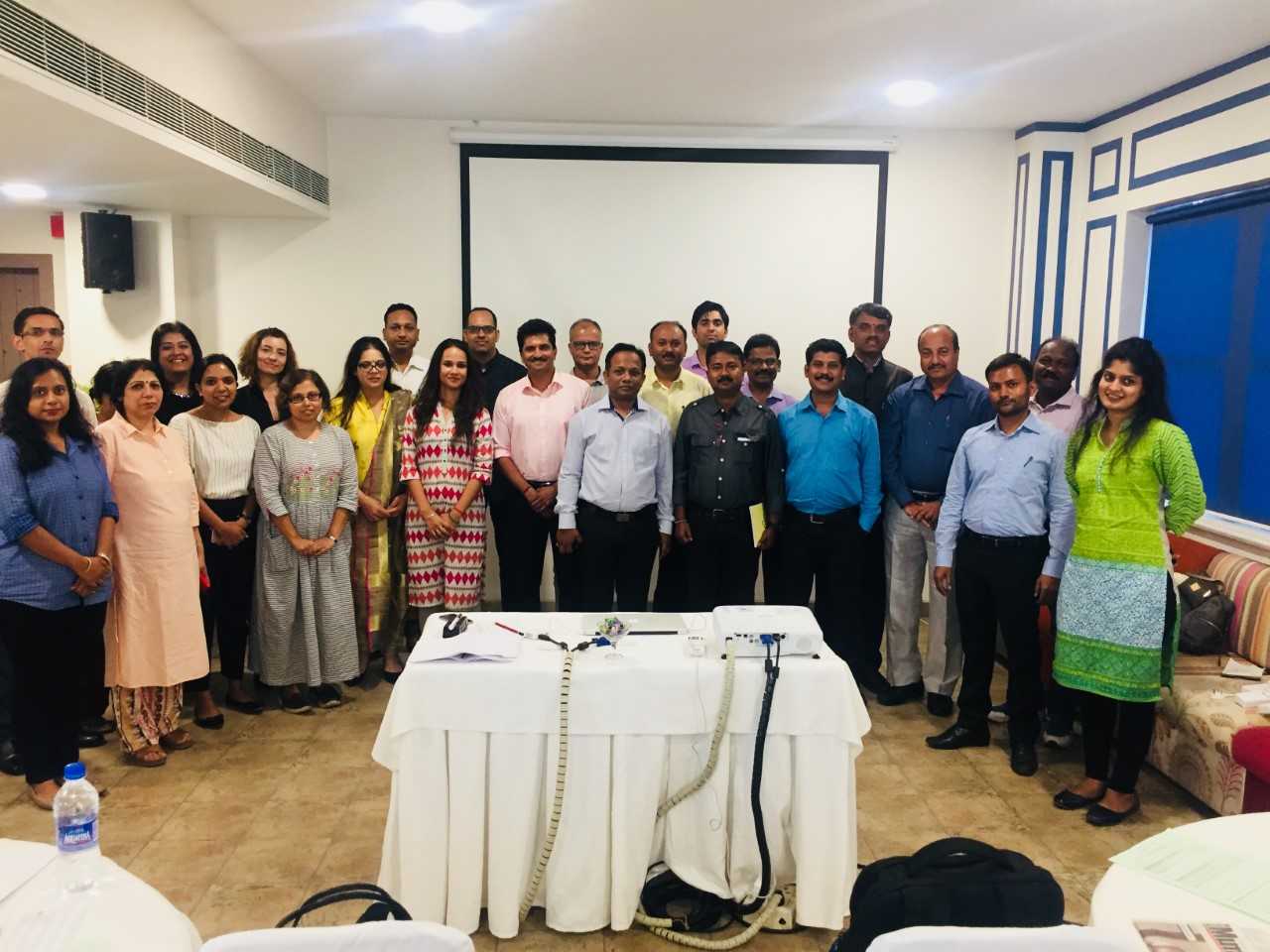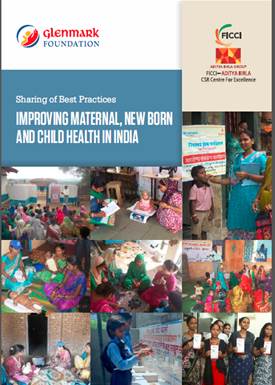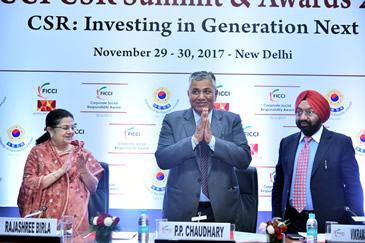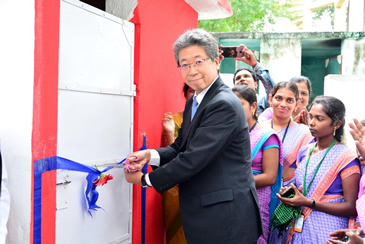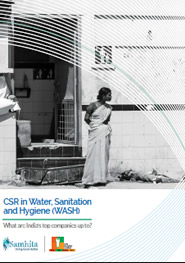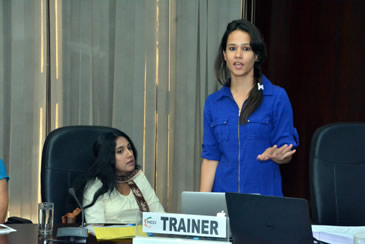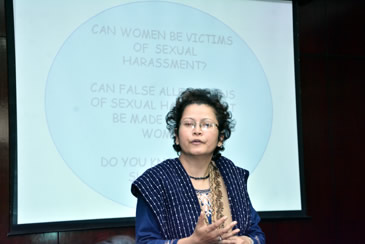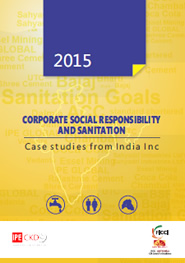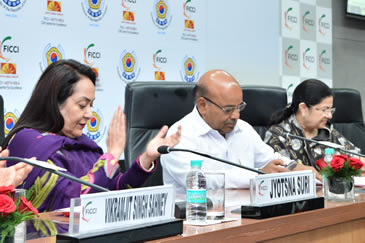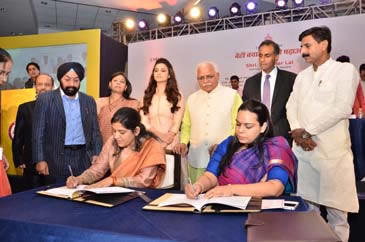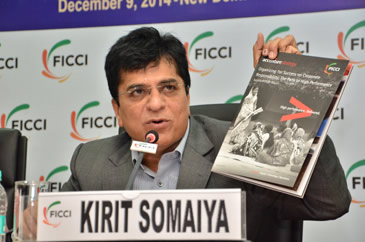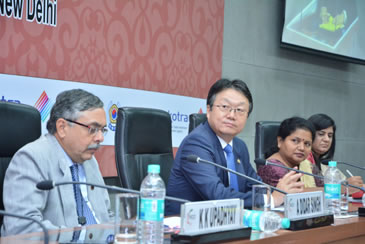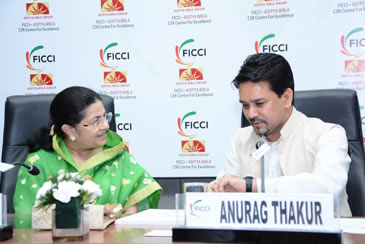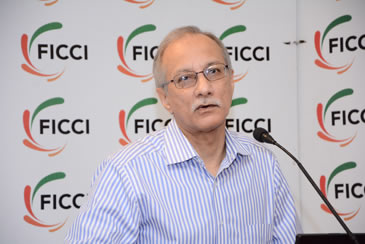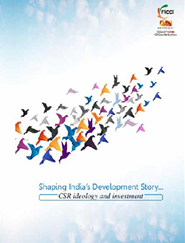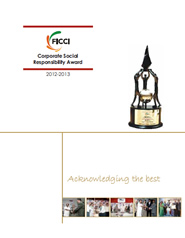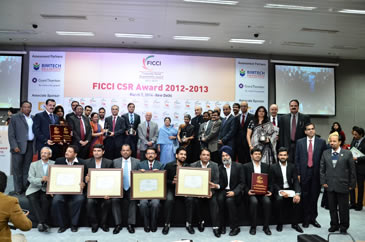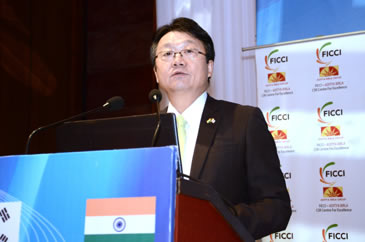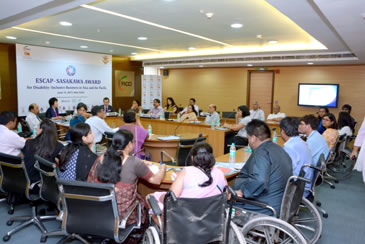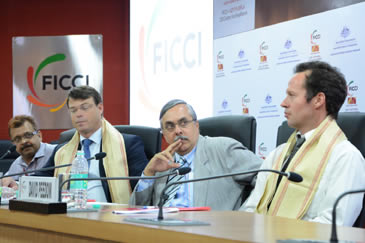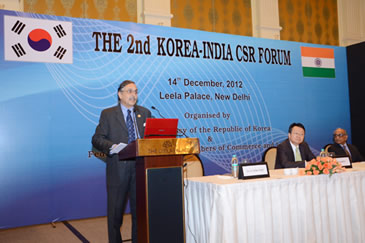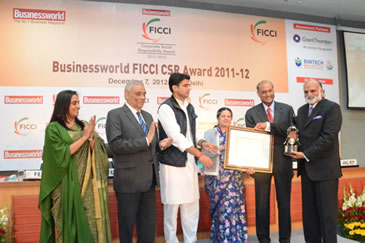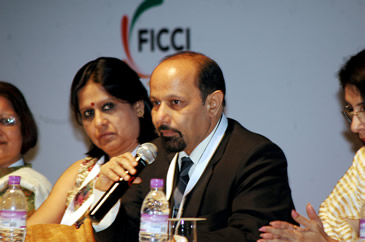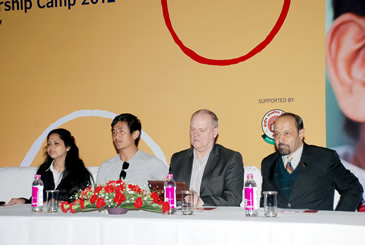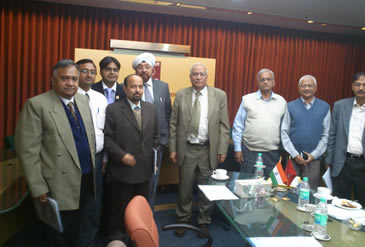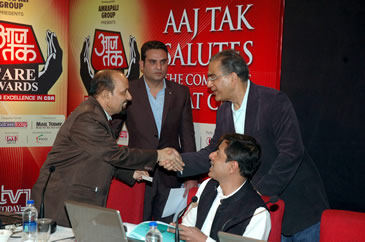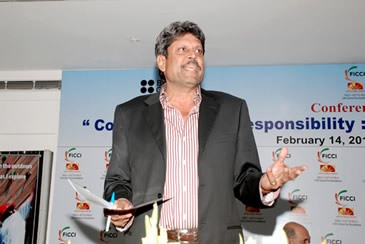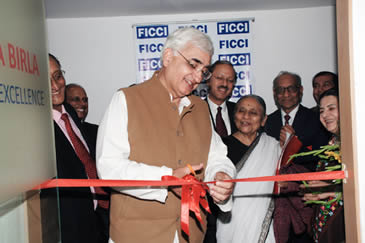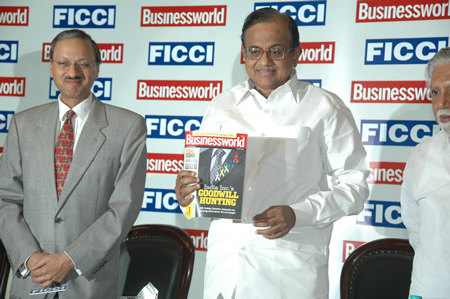FICCI's Engagement
- It works towards advocacy and capacity building for both Corporates and NGOs and awards Companies for exemplary CSR practices through annual FICCI CSR Awards
FICCI Socio-Economic Development Foundation of India (SEDF) was set up in 1995 to provide an institutional base to the social sector activities of corporates in India. Through this initiative, FICCI has been promoting and advocating for Corporate Social Responsibility since early 90s, much before it became a buzz word. FICCI-SEDF has a foundation status and is granted exemption under 80 G.
- The foundation provides end to end CSR project implementation solution and helps its members in project partnerships through CSR Hub.
Team Leader
Uma S Seth
Senior DirectorTimeline
Ministry of Education in discussions with state governments to identify vocation education requirements for specific geographical areas and industries: Vipin Kumar, Additional Secretary, Department of School Education and Literacy, Ministry of Education at IDEATE 2023
Stakeholder Discussion and Dissemination Workshop on Empowerment of Small & Marginalized Farmers in Andhra Pradesh
(Grantees and Partners)
Every Citizen Should Become a Partner in Economic Growth: Shri Arjun Munda
Corporate India can play big role in unleashing the economic potential of NE region: MoS for External Affairs and Education, GoI
FICCI CSR Summit, Awards, Exhibition and Master Class 2022
IDEATE 2022
Paradigm shift in Education Landscape- Blended Pedagogy
Virtual Training on Project Management Lifecycle For Developmental Projects (2nd Batch)
Virtual Training Program: Accelerate For Good
Virtual Training on Project Management Lifecycle for Developmental Projects
CSR Course on Climate Change, Agriculture & Water Conservation
Fireside Chat with Adwaita Nayar
Need to ensure that women in tech not only find voice but make way for other women: Smriti Irani, Minister for Women and Child Development, Govt of India
Need to scale up CSR interventions to achieve economic growth: Rajashree Birla, Chairperson, FICCI CSR & Community Development Committee
Virtual Award Presentation Ceremony for 19th FICCI CSR Awards
Webinar on Social Enterprise: Creating Conducive Eco-System
CSR is an opportunity to work with like-minded partners for betterment of society: Anurag Thakur
UNICEF India Partners with FICCI for #Reimagine Campaign
Smriti Irani launches FICCI-FLO initiative 'Empowering the Greater 50%'
Virtual Master Class on 6 Lessons for Modern Corporates to Ace their Social Responsibility on Digital Media
COVID-19 and LGBTQ+ people's rights: Where lies the gap?
D&I Webinar on COVID-19: Road Ahead for Persons with Disabilities
Technology for COVID Relief, Response and Rehabilitation
D&I Webinar on COVID-19: Road Ahead for PWDs
Webinar on Responding to the impact of Covid-19 on Women in Supply Chains
Webinar on Mental Health During Pandemics
FICCI SEDF and Goodera bring together India Inc's CSR leaders in the fight against COVID-19 pandemic
FICCI CSR Summit and Awards
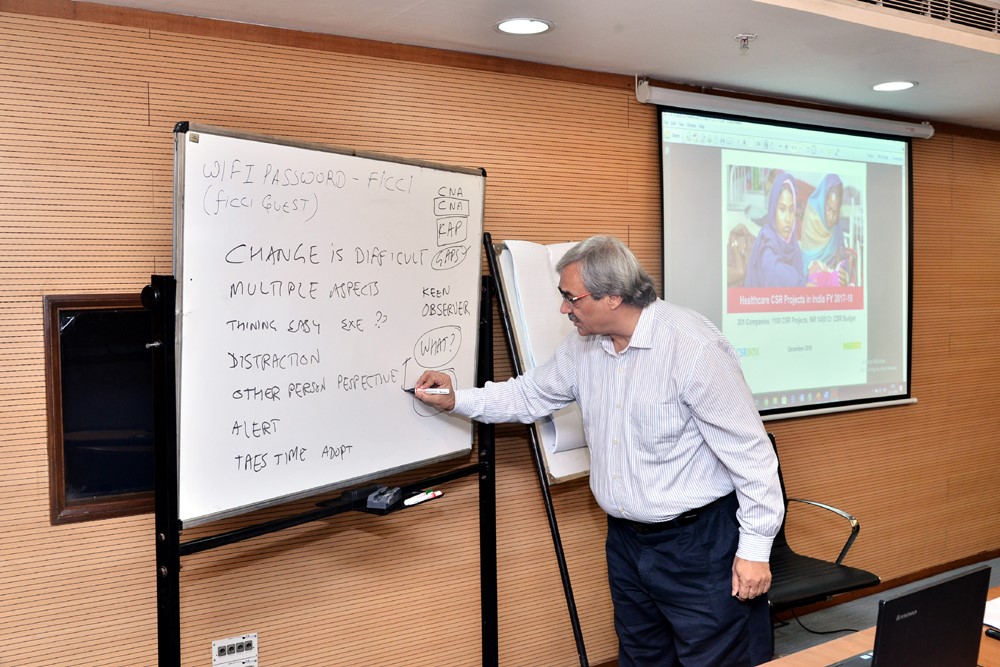
2 Days Training Program on Social and Behaviour Change Communication (SBCC) for Optimising CSR Health Projects: Outcomes and Impact
Govt to set up National Institute of Mental Health Rehabilitation with Rs 179.54 crore outlay - Joint Secretary, Ministry of Social Justice and Empowerment
Minister of State for Food Processing Mr Rameswar Teli lauds private sector role in aiding development in agriculture and food processing sectors
FICCI statement on the new CSR requirements and penalties for non-compliance
CSR mutually beneficial relationship between corporates & society: Suresh Prabhu
Vice President, Venkaiah Naidu's call to focus attention on uplifting the poor, farmers, weavers and craftsmen to achieve real growth
Need to go beyond traditional healthcare methods to address Mental Health Issues
2 Days Training Program on Result Based Program Management
Call for applications for 17th FICCI CSR award 2018
Channelise CSR funds scientifically through NGOs: Suresh Prabhu
Training Program on Technology for Impactful CSR Project Management
NGOs, corporates must drive Ayushman Bharat: Dinesh Arora, Director, Ayushman Bharat
Conference on Sharing of Best Practices: Improving Maternal, New Born and Child Health through CSR
Accessibility & Inclusion at Workplace: Sensitization Workshop on the Rights of Persons with Disabilities Act 2016
Need to focus on innovation to explore the talent of people with disabilities
Seven companies win the FICCI CSR Award 2017
Call for application for the FICCI Corporate Social Responsibility Awards 2016-17
2 Days Training Program on Result Based CSR Project Management
Call for application for the FICCI Corporate Social Responsibility Awards 2015-2016
Report Mapping the CSR trends in Water Sanitation and Hygiene in India
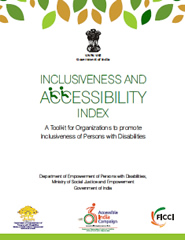
Inclusiveness and Accessibility Index: A Toolkit for Organizations to promote Inclusiveness of Persons with Disabilities
FICCI Corporate Social Responsibility Survey
Corporate Social Responsibility now a strategic decision-making process for Indian companies: FICCI Survey
Minister for Social Justice & Empowerment felicitates winners of FICCI CSR Awards
FICCI signs MoU with Govt. of Haryana for promoting Gender Equity and Women Empowerment
Workshop on CSR Monitoring, Evaluation and Reporting
FICCI joins hands with Govt of India to extend relief to Nepal
FICCI sets up special cell under its Socio Economic Development Foundation (SEDF) to manage the relief for Nepal quake
FICCI - Accenture report calls on Businesses to rethink their approach to Corporate Social Responsibility for a Greater Economic and Social Impact
Call for application: FICCI Corporate Social Responsibility Award - 2013-14
2 Days Training: Designing CSR Project through ISO 26000 : 2010
The notification of the CSR Rules by the Ministry of Corporate Affaires is a positive step...and the implementation will allow Boards all reasonable flexibility - says FICCI President
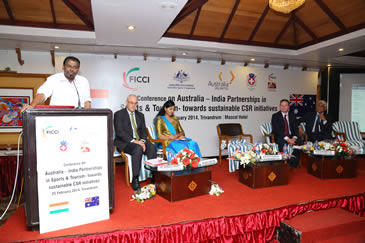
Australia-India Partnerships in Sports & Tourism - towards sustainable CSR Initiatives
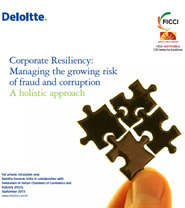
Corporate Resiliency: Managing the growing risk of fraud and corruption A holistic approach
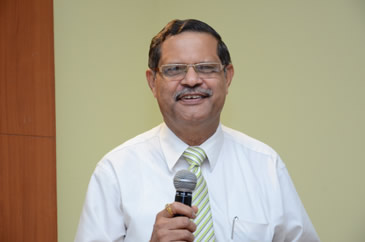
How TRANSPARENT are you? A holistic approach towards managing the growing risk of fraud and corruption
Call for application for the FICCI Corporate Social Responsibility Award 2012-2013
FICCI Task Force on Uttarakhand Rehabilitation to Build Affordable Houses, Skill and Train Youth, Provide Clean Water, Sanitation & Create Disaster Management Portal
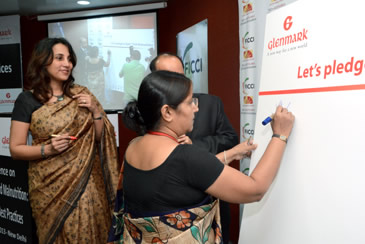
Glenmark and FICCI Aditya Birla CSR Centre for Excellence's Conference on Combating Child Malnutrition: Sharing of Best Practices
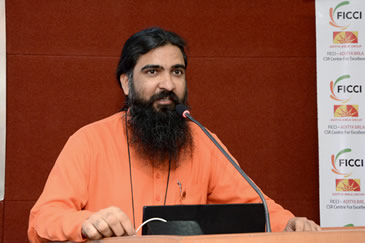
Roundtable on Private Sector Engagement Prisoner Reformation, Rehabilitation and Reintegration
Training Programme on Strategizing and Reporting CorporateSocial Responsibility
ISO 26000: Social Responsibility and National Voluntary Guidelines (NVGs) on the Social, Environmental and Economic Responsibilities of Business
Call for application: Businessworld FICCI Corporate Social Responsibility Award 2011-2012
Discussion on 'Inclusion and Empowerment initiatives by the Corporate Sector'
Conference on Promoting Inclusive Development through CSR: Equal opportunities to people with disabilities
1st Joint FICCI / OECD Mumbai Awareness-Raising Roundtable Discussion on Foreign Bribery
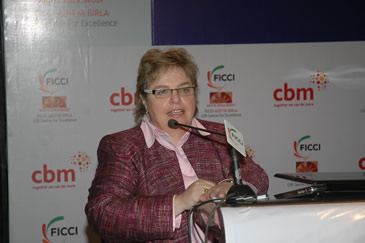
Roundtable on “Promoting Inclusive Development through CSR: Equal opportunities to people with disabilities

National Convention on Corporate Social Responsibility and HIV & TB Interventions in the World of Work, India
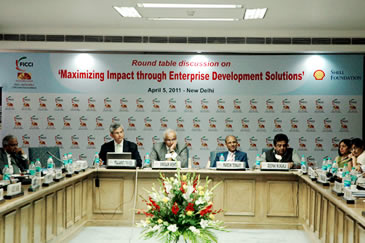
Round Table Discussion on 'Maximizing Impact through Enterprise Development Solutions''
Call for Application for Businessworld-FICCI-SEDF CSR Awards 2010-2011
FICCI-Aditya Birla CSR Centre for Excellence Launched
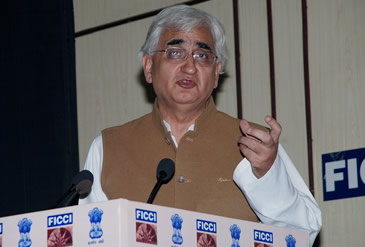
National Convention on Corporate Social Responsibility: Responsible Business to Social Empowerment
Businessworld-FICCI-SEDF Corporate Social Responsibility Award - 2009


